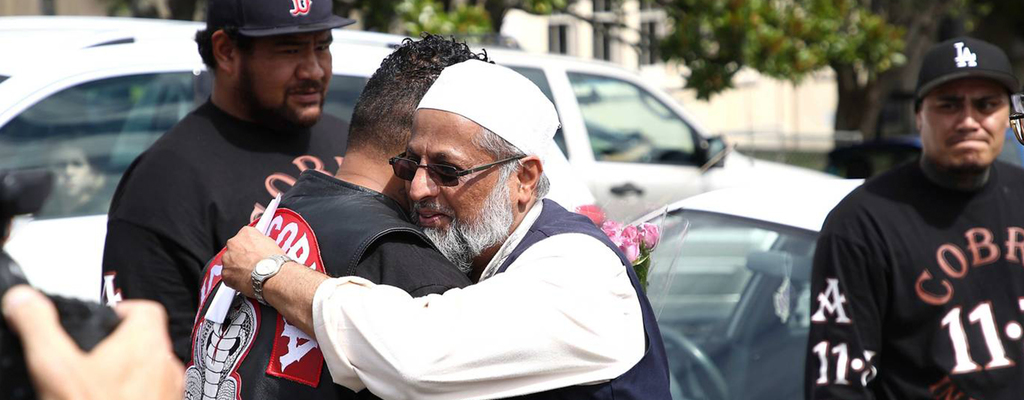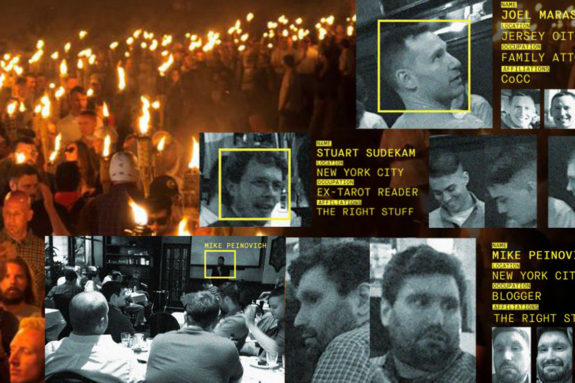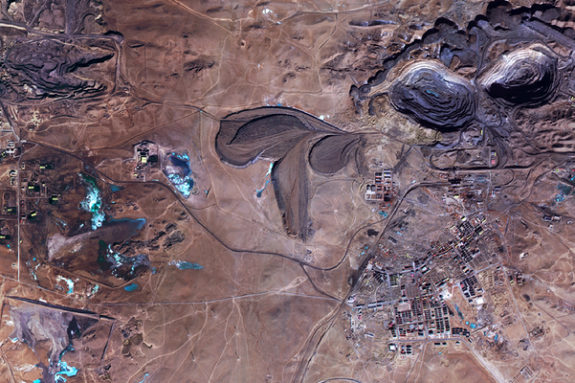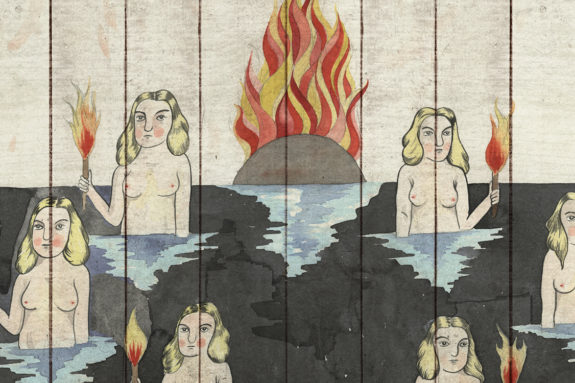Silicon Valley billionaires buy up land in New Zealand, expecting to ride out climate apocalypse from the island refuge. But for hundreds of thousands of New Zealanders, there is no refuge from the rising tide of nativism and white supremacy.
If you listened to our media, you’d be forgiven for thinking that fascism first came to the tolerant islands of New Zealand on March 15, when Brenton Tarrant, an avowed white supremacist, killed fifty people at two separate mosques in the town of Christchurch. But fascism has been here all along. Prime Minister Jacinda Ardern can utter as many platitudes as she likes, but her declaration that “the person who has committed this violent attack has no place here” is contradicted on every street corner. Attempting to make foreign the fear of foreigners that is at the root of the Mosque attack, Simon Bridges, leader of the largest opposition party (the National Party), was even more preposterous in his description of the act as “foreign to everything that makes us Kiwis, our beliefs, our values, our tolerance, how we live and get along with one another.”
Fascism is not an American or Scandinavian import, whatever the inspiration for the attacks. It has always existed in New Zealand. Readers elsewhere in the Anglophone world may not know that Ardern, a member of the Labour Party and, at 38, the youngest female head of state in the world, leads a government formed in coalition with New Zealand First, a nationalist party drawing its inspiration from other right-populist parties and campaigning primarily on an anti-immigrant platform. One of their main policy proposals would force immigrants to pledge respect for “kiwi values.” Included in these so-called “kiwi values” are commitments to respect freedom of religion, legal sexual preferences, gender equality, and the right to consume alcohol, a list of would-be liberal values into which a paranoia about Sharia law appears to have been carefully embedded. Ardern distanced Labour from this proposal but nonetheless joined New Zealand First in coalition, making their leader, Winston Peters, Deputy Prime Minister. This despite Peters’s nearly thirty-year career in parliament as an inveterate racist. To give just one example, in a 2014 speech about the need to restrict Chinese immigration to New Zealand, he offered the racist dad joke “two Wongs don’t make a right.”
Racism and xenophobia are as profound a part of Kiwi values as Sunday roast, or the Friday rugby match. Māori, the indigenous people of the land, have suffered the worst of it, but throughout New Zealand’s history the migrant community has borne its share of racist venom. In the late nineteenth century, there were vicious attacks against the Chinese immigrants who worked the goldmines in Otago and mass petitions for a ban on Chinese immigration. In the 1930s, New Zealand closed its doors to Jewish refugees, who were described in government reports as a threat to the New Zealand middle class. In the 1970s, members of the Pasifika (Pacific Islander) community in Auckland were dragged from their beds by police for “overstaying visas” in what would come to be known as the “Dawn Raids.” Today, the Muslim community is the target of this xenophobic rage.
Both of us grew up in Christchurch. Often, when we tell someone from Auckland or Wellington that we are from Christchurch, they will begin making jokes about its status as the white supremacist capital of New Zealand. When we were in high school, the local white supremacist gang instituted “safety patrols” of the predominately Māori and Pasifika community where we went to school. They were basically looking for non-white kids to beat up. The leader of this gang, Kyle Chapman, ran for Mayor of Christchurch three times, and was treated by the New Zealand Herald as simply another “wacky” candidate among many. So wacky, in fact, that he had been convicted for firebombing a marae (a Māori meeting house).
One of our fathers also grew up in Christchurch. He recalls the school’s cricket coach telling the kids not to elect him as team captain since “he was a Jew.” A friend from Auckland recounted his recent trip to Christchurch. He was in town for Shabbat and attending services at the local Synagogue. He asked the congregants if the shul had been the target of any anti-Semitic graffiti or threats. “Yes, on occasion,” they said, but added that, “the mosque seems to have taken most of the racists’ attention since it opened up on the other side of Hagley Park.” Anti-Semitism and Islamophobia go hand in hand in Christchurch.
The mosque attacks are shocking but unsurprising in a town where we frequently encountered Cantabrians with swastikas tattooed on their neck and heard racial slurs yelled from passing cars. One of us, from an Indonesian family of devout Muslims, went to school following 9/11 and the invasion of Afghanistan (willingly participated in by New Zealand). He remembers very well the wave of intense Islamophobia that swept over New Zealand and the rest of the world. It may not have been clear to him what it meant to be a Muslim beyond the prayers said as a kid and the pigs not eaten, but it was clear that, in Christchurch, a Muslim was something you didn’t want to be.
We both recall our years at the University of Canterbury. The University’s largest student organisation, ENSOC (University of Canterbury Engineering Society) encouraged people to dress up as the Taliban, as blackace “Ebola Victims,” and “Gaza-Strippers.” The latter incident occurred only one month after Israel massacred over two thousand civilians in Gaza, the former during the 2014 West Africa Ebola outbreak. The Engineering Society and the students involved received no punishment whatsoever. We wrote letters to the Vice Chancellor, joined by the University Feminist Society, various students from the Muslim community, and a few academics. No response.
“When we were in high school, the local white supremacist gang instituted ‘safety patrols’ of the predominately Māori and Pasifika community where we went to school. They were basically looking for non-white kids to beat up.”
We were both here for the 2011 Christchurch earthquake that claimed the lives of 185 people, and together participated in the recovery effort. We experienced firsthand the solidarity that emerges in the wake of disaster. Fascism is not a natural disaster, however. It is part of the very fabric of our society, and we will never understand what happened by continuing to act as if it were a freak occurrence. The fortunate part is that, unlike an earthquake, we can do something to stop it. That will involve confronting our racist past—such as the 1881 invasion of Parihaka, during which thousands of Māori were dispossessed and displaced by the New Zealand military. It would mean reckoning with our ruling coalition’s anti-migrant rhetoric and policy. It means a stop to our participation in wars in the Middle East, from the War in Afghanistan (where NZ Special Forces have been accused of war crimes) to our current deployment to Iraq.
Even more importantly, it means antifascist politics that challenge not just the racist from your high school or your uncle at the dinner table, but the racists in institutional power. However much the liberal politicians like Ardern condemn the attack, they aided and abetted it through their parliamentary politics. While national and international media and leaders praise the Prime Minister’s handling of the attack, they obscure the fact she herself campaigned on anti-immigration politics. We must remember that the New Zealand Labour Party is only in power through its compromise with New Zealand’s most long-standing and famous racists. The quote that comes to mind is “mourn today, organize tomorrow” but that organization cannot be parliamentary, and it cannot be in favour of the ruling class, like the current government who have shown themselves incapable of challenging New Zealand’s racist past or present. We must have anti-fascist politics that are working class, pro-migrant, and of course, revolutionary. Until then, whatever the Prime Minister says, fascism has a place here.





